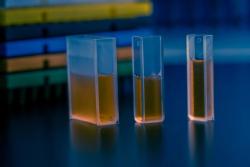
OR WAIT null SECS
- About Us
- Advertise
- Contact Us
- Editorial Info
- Editorial Advisory Board
- Do Not Sell My Personal Information
- Privacy Policy
- Terms and Conditions
© 2026 MJH Life Sciences™ , Pharmaceutical Technology - Pharma News and Development Insights. All rights reserved.
Axol Bioscience Announces CiPA-Validated Human Stem Cell-Derived Ventricular Cardiomyocytes
Axol Bioscience’s CiPA-validated ventricular cardiomyocytes can be used as a robust cardiotoxicity measurement tool.
Axol Bioscience, a provider of induced pluripotent stem cell (ISPC)-derived cells, media, and characterization services for life science discovery, announced that its IPSC-derived ventricular cardiomyocytes have undergone comprehensive in-vitro pro-arrhythmia assay (CiPA) validation on June 7, 2022. This assay showed that the cells were suitable for measuring cardiotoxicity, which offers scientists a robust cardiac model for drug discovery and screening.
CiPa is a working group developed by FDA to assess the utility of human iPSC-derived ventricular cardiomyocytes by reproducing cardiotoxicity in a dish. The assay tests cells with 28 compounds that are known to be cardiotoxic and induce the fatal arrhythmia “Torsades de Pointes”. According to an Axol press release, Clyde BioSciences, a contract research organization that specializes in cardiotoxicity assays, used this assay to validate Axol’s cardiomyocytes for cardiac safety testing.
“As a core member of the CiPA initiative, we’re pleased to have supported Axol’s cell development and helped the team assess the performance of its cardiomyocytes,” said Godfrey Smith, chief scientific officer, Clyde Biosciences, in the press release. “Having run the CiPA protocol on Clyde’s proprietary CellOPTIQ platform, and provided analysis and interpretation of the data, we confirm our data indicate that Axol’s cardiomyocytes meet the requirements for predictive in vitro pro-arrhythmia screening.”
Axol’s human iPSC-derived ventricular cardiomyocytes provide a continuous source of cells from the same genetic background for use in multiple experiments and a physiologically relevant in-vitro research model of human heart cells. This allows for reliable, repeatable cardiotoxicity testing for drug candidates at scale.
“Scientists need cells and reagents they can rely on to make meaningful assessments of drug candidate toxicity, before progressing candidates to the clinic,” said Liam Taylor, CEO, Axol Bioscience, in the press release. “We’re both excited and proud to demonstrate the suitability of our human iPSC-derived ventricular cardiomyocytes for toxicity testing. Axol’s stringent quality control standards mean we have the capability to produce reliable, validated cells that scientists can use to assess a compound’s cardiac liability and, ultimately, help to improve the drug discovery process.”
Source: Axol Bioscience



